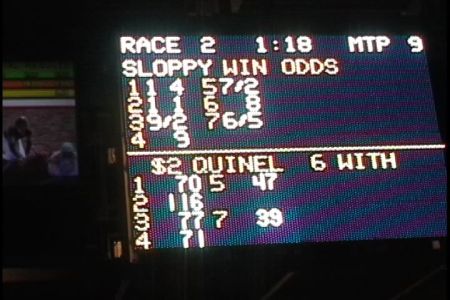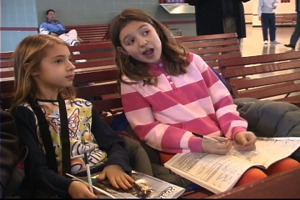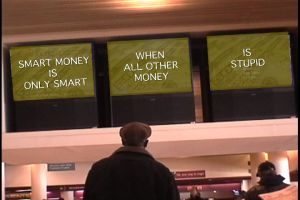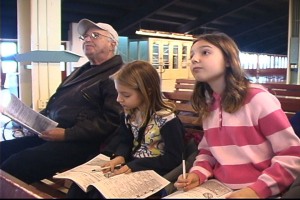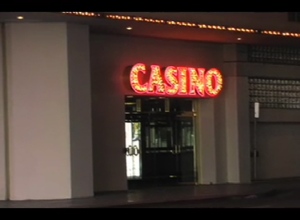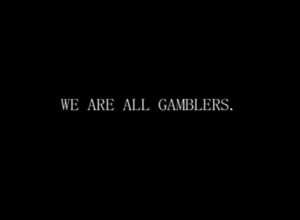So, I am back after a short hiatus. Four years. Some changes have taken place: some gains, few losses.
And, in the meantime, Essentially a Gambling People, my short movie essay (completed in 2009), has been screened internationally, accompanied by a lively discussion of gambling in the Czech Republic in 2012. Since gambling there, according to the discussants, is rather a personal activity to hide rather than to advertise, it is not necessarily celebrated in the larger culture in the same way that Americans consider it a mainstream activity. Not that the activity here is without the reality of addiction and personal ruin making, and thus, shame. However, it would be ridiculous to say that the overall tenor of gambling or its discussion is socially taboo. Officially gambling is termed gaming. I have sometimes wondered whether the latter term is less pejorative, less loaded, as it were, than gambling. It seems from a little online research, though, that gaming refers to legal gambling, at least in the U.S. (Gaming may also refer to online games such as multi-player online games).
Back to essentially the gamble/rs.
I live in an area of New York that is likely to be a recipient of state permission to house a casino, as newly passed in a popular referendum. New York State does house casinos on several Indian reservations, and those areas will not be getting new casinos, and neither will New York City or downstate counties be allowed to build casinos for several years. Here, in the Catskill Mountain area, the old Borscht Belt resorts that have languished and fallen into decrepitude are the likely first tier of one and possibly two casino enterprises.
So, what is the local take on casino enterprises here? Local businesses and business groups are putting a mostly positive spin on the prospect. They expect a substantial economic rise from the expected construction (or reconstruction) and influx of visitors and patrons. Their claims for the new jobs that will be good for the local population are at roughly 1,000 jobs. Communities and community groups are skeptical.
Detractors maintain that the job rise is likely to be for the period of building and won’t continue past the first couple of years. Furthermore, the added long-term jobs are low-wage jobs that will not really add purchase-power benefit to the existing communities and their businesses. Furthermore, housing prices have tended to fall in the immediate areas around casinos (with the exception of the boom that Las Vegas experienced). And crime has gone up within a mile or so from casinos.
So, what is the fine print somewhere between the hyped “this will be great!” and the head-shaking “this will be terrible!” texts?
How will “the community” measure the benefits/malignances (or the benefits vs depravities) of the coming windfall? According to two studies I read (linked below), immediate areas surrounding casinos do tend to lose in terms of housing values and social costs in bankruptcy and gambling-related problems (addiction, job loss), as well as gain in crime. Economic gains in those areas can be due to the influx of casino patronage, but usually only if the area is drawing those visitors for extended stays. Day gamblers do not typically add economic benefit. And if the casinos attract the local people to gamble, they add to the local bankruptcy rolls.
On the bright side, the Catskills have other inviting features besides casino resorts that might accentuate the benefits of having casinos in the area. Will the casino marketing also entice patrons to check out outdoor recreation in and around the state parks? Will the casinos take advantage of the area’s bountiful farm products and serve locally sourced meals? Will the casinos actually bring in numbers of patrons from outside the area?
The two counties involved, Ulster and Sullivan, might have different needs and takes on the addition of casinos. For Sullivan County the benefits might really outweigh the negatives. Many of the communities in the area of the old resorts are in need of a boon. Ulster County has a wider spectrum of thriving communities and ones in great need. Will the communities in need see the windfall?
I think that the local community groups, business groups and interested government parties need to do some continuing work to balance out the needs of the communities with the short-term goals of the casinos. Among the quid pro quos that will inevitably be part of the picture should be real support for local agriculture, education and small businesses in the community. Casino business is as much of a chance for all as it is a skeptics’ nightmare. One thing is certain, it is not time to hold one’s breath and see. It is time to talk.
Links to the two reviews I looked at.
The Social Impact of Casinos: Literature Review and Cost Estimates
Click to access Casino%20Social%20Effect%201-21-10.pdf
Economic Impact of Casinos on Home Prices Literature Survey and Issue Analysis NAR Research
